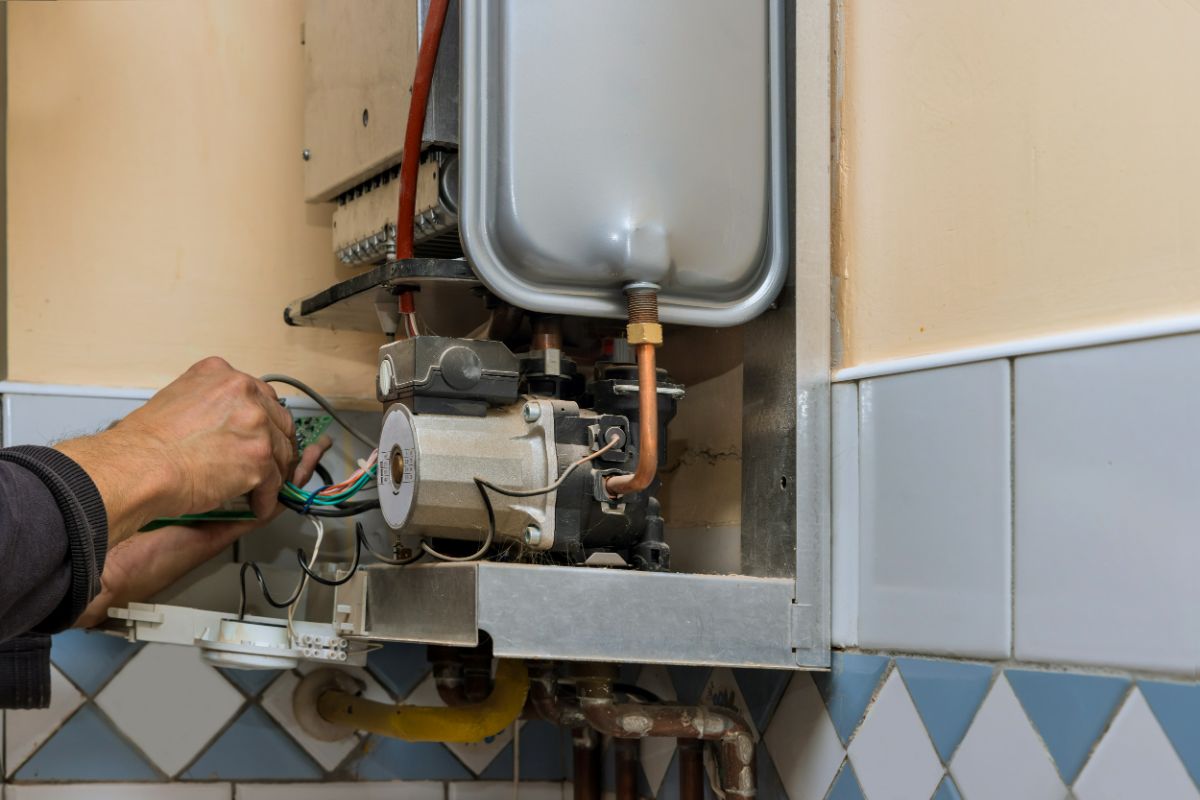Simple Steps to Maintaining Your Home's Hot Water SystemHow to Properly Maintain Your Home's Hot Water System
Simple Steps to Maintaining Your Home's Hot Water SystemHow to Properly Maintain Your Home's Hot Water System
Blog Article
The author is making a few great annotation regarding How to Maintain Your Water Heater & Prolong its Life overall in the content which follows.

Warm water is essential for everyday comfort, whether it's for a rejuvenating shower or cleaning recipes. To guarantee your hot water system runs efficiently and lasts longer, regular maintenance is essential. This post gives sensible pointers and insights on how to maintain your home's hot water system to stay clear of disturbances and pricey fixings.
Intro
Keeping your home's warm water system could appear daunting, but with a few simple steps, you can ensure it runs efficiently for several years to find. This overview covers whatever from understanding your hot water system to DIY upkeep pointers and recognizing when to call specialist aid.
Value of Preserving Your Hot Water System
Regular upkeep not just expands the life expectancy of your hot water system but also ensures it runs successfully. Overlooking maintenance can bring about reduced efficiency, greater energy bills, and also premature failing of the system.
Indications Your Hot Water System Demands Maintenance
Knowing when your warm water system needs focus can avoid major problems. Look out for indications such as inconsistent water temperature level, weird sounds from the heater, or corroded water.
Purging the Water Heater
Flushing your hot water heater eliminates sediment build-up, boosting effectiveness and prolonging its life.
Monitoring and Replacing Anode Rods
Anode rods protect against corrosion inside the container. Checking and replacing them when worn out is vital.
Complicated Issues Calling For Expert Aid
Instances include significant leaks, electric issues, or if your water heater is continually underperforming.
Routine Professional Upkeep Conveniences
Professional maintenance can consist of thorough assessments, tune-ups, and ensuring compliance with safety and security criteria.
Inspecting and Changing Temperature Level Settings
Changing the temperature level settings guarantees optimum performance and security.
Do It Yourself Tips for Maintenance
You can carry out a number of upkeep tasks yourself to maintain your warm water system in top problem.
Looking for Leaks
Consistently examine pipelines and connections for leakages, as these can result in water damages and greater bills.
Comprehending Your Warm Water System
Before diving into upkeep tasks, it's practical to understand the fundamental parts of your hot water system. Normally, this consists of the water heater itself, pipelines, anode poles, and temperature controls.
Month-to-month Upkeep Tasks
Regular regular monthly checks can aid catch minor problems before they intensify.
Examining Stress Alleviation Valves
Testing the pressure relief valve ensures it works properly and stops too much stress build-up.
Insulating Pipes
Insulating hot water pipes decreases heat loss and can save energy.
When to Call an Expert
While DIY maintenance is useful, some problems need expert competence.
Final thought
Routine upkeep of your home's warm water system is essential for efficiency, durability, and expense financial savings. By complying with these suggestions and understanding when to look for specialist aid, you can ensure a dependable supply of hot water without unforeseen interruptions.
How to Maintain an Instant Hot Water Heater
Before tinkering with your hot water heater, make sure that it’s not powered on. You also have to turn off the main circuit breaker and shut off the main gas line to prevent accidents. Also turn off the water valves connected to your unit to prevent water from flowing into and out of the appliance. 2. When you’re done, you have to detach the purge valves’ caps. These look like the letter “T” and are situated on either side of the water valves. Doing so will release any pressure that has accumulated inside the valves while at the same time avoid hot water from shooting out and burning your skin. 3. When the purge valves’ caps are removed, you have to connect your hosing lines to the valves. Your unit should have come with three hoses but if it didn’t, you can purchase these things from any hardware or home repair shops. You can also get them from retail stores that sell water heating systems. Read the user’s manual and follow it to complete this task properly. When the hosing lines are connected, open the purge port’s valves. 4. You should never use harsh chemical cleaners or solutions when cleaning your unit. Make use of white vinegar instead. It should be undiluted and you’ll probably use about 2 gallons. 5. Now flush your water heater. This task should probably take about 40 minutes. We can’t give you specific directions for this because the procedure is carried out depending on the type, model and brand of your heater. With that being said, refer to the user’s manual. 6. When you’re done draining the unit, you have to turn off the purge port valves again. Remove the hosing lines that you earlier installed on each of the water valves. Put the valve caps (purge port) back in their respective places and be very careful so as not to damage the rubber discs that are found inside these caps. 7. Now that everything’s back in place, check your user’s manual again to find out how to reactivate your water heating system. 8. Once it is working, turn one of your hot water faucets on just to let air pass through the heater’s water supply pipes. Leave the tap on until water flows smoothly out of it. https://www.orrplumbing.com/blog/2014/september/how-to-maintain-an-instant-hot-water-heater/

Hopefully you liked our part on Tips on Maintaining a Water Heater. Thanks a lot for finding the time to read through our posting. Don't hesitate to set aside a second to share this blog posting if you appreciated it. Thanks for being here. Revisit us soon.
Set Up An Appointment Report this page